 Betrayed and bereft of the support of her living family, respectable and desperate young Sophia Brewer has gone west and taken up employment as a waitress with the Fred Harvey Company, who owned the restaurant concession along the route of the Atchison, Topeka and Santa Fe Railroad. This will be my next western adventure … Enjoy.
Betrayed and bereft of the support of her living family, respectable and desperate young Sophia Brewer has gone west and taken up employment as a waitress with the Fred Harvey Company, who owned the restaurant concession along the route of the Atchison, Topeka and Santa Fe Railroad. This will be my next western adventure … Enjoy.
Chapter 11 – Chance Met in Newton
The brief four weeks of their probationary time passed as if in a dream for Sophia, the hours of the day marked by the whistles of arriving trains, and all active thought taken up with memorizing the minutiae of the Harvey system, of threading her way between lunchroom and kitchen, bearing trays throughout all the daylight hours and into the evening. On one particular morning, she looked up from pouring a cup of coffee at the lunchroom counter to meet the eyes of Mr. Harvey, thinly disguised in a lamentable overcoat and a hat which was the masculine equal of Siobhan Teague’s forlorn and unfashionable bonnet.
“Good morning, Mr. Harvey,” she retained enough self-possession to say – as if every morning she brought coffee to the head of the company. “What may I bring to you – Mr. Stahlmeyer’s bread and pastries always delight, and he has baked a prodigious number of them this morning…”
“I know,” Mr. Harvey grinned, for a moment wholly and uninhibitedly boyish. “I know everything about my enterprise … and of what I have forgotten, Dave and Ford remind me. So you are content in our house, Miss Teague?”
“I am, sir.” Sophia replied – for she was. As she accustomed herself to the work, and the manner of thinking behind it, her movements became swift, assured; indeed, she herself skimmed through the lunchroom with the very dance-like grace which she had envied in the other girls on the night of hers’ and Laura’s arrival. The cup codes, the way of setting a place, and taking an order swiftly and accurately became as much a second nature as breathing in a remarkably short time. Jenny Maitland was correct: she could do this.
“Good,” Mr. Harvey appeared to be very pleased. “Dave and I were certain you would be a girl who would work out – consider yourself a part of the company for the term of your contract; Miss Maitland has given a good report of you. Would you prefer to remain in Newton for now, or would you be willing to accept an assignment elsewhere as needed? Next year, if you choose to renew your contract, you may request an assignment anywhere along the AT&SA.”
“Newton for now, sir,” Sophia replied. “I have so many friends here already; I should dislike to be parted from them. There is still much for me to learn – and I would like to consider where I might go, then. As far from Boston as possible, I am certain.”
“New Mexico is a coming place,” Mr. Harvey agreed. “And the weather in California is very mild in comparison to Kansas. Take your time, Miss Teague. I understand that you are an orphan – consider the company to be your family at large.”
“I will, sir,” Sophia felt as light with relief as a balloon on a windy day – as light as she had on the day In Kansas City when Mr. Harvey said that she was hired. She was safe from Richard, of that she was certain –she slept well on most nights, being exhausted after a day of work. She had friends, allies, gainful and mostly respectable employment. The excitement of being at the crossroads of the west never palled; one spring day, three trains bearing the company and horses of Buffalo Bill Cody’s Wild West extravaganza, on their way east. On another day it was a great party of Army officers, all hung about with gold braid – the girls working in the dining room insisted that General Phil Sheridan – the highest-ranking general in the whole Army of the West was among them.
On cold and blustery day which presaged the coming winter – which everyone assured Sophia would be colder and more storm-ridden than she could imagine – the last scheduled train of the day came and went, bringing the usual rush of hungry passengers into the dining room and the lunchroom, and bearing them away again a brisk half-hour later. There remained only a special train sitting on a side spur – engine, coal car and a single ornate palace car, with light seeping from behind closed curtains. The sides of the car were hung with dark fabric. Sophia, run off her feet with the rush to serve the regular passenger train travelers, had not paid it much attention, although every aspect of her world was now ruled by the railway and Fred Harvey between them. One of the busboys had brought supper to the engineer and the firemen and returned with the intelligence that the palace car belonged to a wealthy rancher. On a journey to Colorado, the rancher – a man of some years – had fallen ill and died. They were bringing him back to Texas to be buried in his home acres, the busboy said. The palace car had its own kitchen and staff; those passengers on it – apparently the rancher’s closest family – had no need of coming to the Harvey House. Now Sophia did wonder why the special was still waiting, as dusk swept down over the prairie like a vast dark wing, bringing with it a cool little breeze, smelling of dust and cut hay. Outside the stars in the eastern half of the sky began twinkling faintly, but mellow golden lamplight bathed the dining room, reflecting off the spotless white tablecloths, the twinkle of silverware laid out, and the great silver coffee urns. Sophia had been promoted from the lunchroom into the dining-room proper. Now she polished away an almost invisible splatter from the surface underneath the spout and regarded her station with anxious pride. It was very ordinary work, considered in one way; those whom she had associated with in Boston would have considered it demeaning, barely a step above from being a common housemaid. But out here – this was good and useful work, in which one could take pride. Ever at the back of her mind was Agnes’s girlish voice, saying in all earnestness that well-done work was worship.
And she was nearly at the end of her shift; twelve hours on her feet, in more or less constant motion; everything about her person, her actions, her words and her demeanor a living demonstration and testament to the Harvey ideal. She stifled a yawn behind her hand. The dining room was nearly empty; a handful of diners with time and leisure to enjoy their meal. Footsteps resounded along the station platform, and a pair of men came through the nearest door; the younger as tall as a tree, and very fair. He looked to be in his thirties or thereabouts. The other appeared some fifteen years older, wiry of build, fit and weathered by a lifetime in the out-of-doors. They both were in dark suits, with a band of black crepe on their coat sleeves; from that, Sophia assumed they were from the special train. No need to lend them a coat to sit in the restaurant. She put away her polishing cloth and showed them to the end of a table, noting as she did so that they were speaking German to each other.
“Would you prefer coffee, milk, iced or hot tea?” she asked courteously in that language and the younger gentleman’s eyebrows rose. If the older gentleman was likewise surprised, he concealed it quite well.
“Milch, bitte,” he replied and the younger man nodded. Sophia swiftly arranged the cups – upside down and apart from the saucer; she could already see Laura with the tray of jugs and carafes coming across the dining room. Laura poured out the milk – fresh, sweet and cold from the cool-room where it had been stored until just a few minutes before. The young man’s eyebrows rose again.
“How did she know?” he asked. “You never said a word!” The older gentleman laughed.
“It’s magic,” he said, cheerfully. “Don’t ask the magician – these Harvey Mädchen – how it is done, Peter.” Sophia recited the dinner menu for the day. The gentlemen both decided on fresh trout from Lake Michigan, with duchesse potatoes, and fresh green peas, with cheese, water-crackers and fresh fruit for afters. Before Sophia even took their order to the kitchen, Letty appeared with the salad course – fresh oranges, sliced into rounds, dressed with fresh onions and olives – and silently set them in front of the two gentlemen. The older gentleman took out his napkin, saying,
“The very first time I crossed from Texas to California, I would have thought myself in heaven to have sat at a meal such as this.”
“Times change, Onkel Fredi,” the younger said. “Now and again for the better. Not even Absalom could have contrived fresh lake trout in the middle of Kansas.”
“And Hansi’s palace car beats sleeping under the wagon, not so?” Sophia heard Uncle Fredi answer. Her apron rustled with the stiffness of many layers of starch applied. She thought wistfully of how it would have been pleasant to continue speaking German to Uncle Fredi and his tall nephew, Peter. She had learned the language because Great-Aunt Minnie spoke of it, saying that so many interesting things were written only in German – poetry and belles-lettres and matters of scientific interest … she had practiced assiduously in her schooldays with those native speakers of that tongue, but any conversation with diners save of the most brief was frowned upon – yea, discouraged.
When their orders emerged, piping-hot and savory, Sophia ferried them back to her station, laying down the plates with the care that Mr. Harvey had always insisted upon. It gratified her that Uncle Fredi and Peter both looked at their supper with delighted good appetite, but Peter stayed her as she would have rustled away.
“May we ask for a serving of this for my wife? And some fine soup and that good bread, as well. But taken to our coach … you see … we are in something of an emergency. Miss…”
“Teague,” Sophia answered, hardly noticing that he had switched over to English. “Miss Teague. I am certain this will be allowed – it is Mr. Fred Harvey’s dictate that every reasonable indulgence is taken for the satisfaction of our guests, but I must first ask permission of our manager.”
“Thank you,” The younger gentleman looked down at his exquisitely arranged plate; fine bone china, silverware all polished until it gleamed like glass. “You find us at an unfortunate moment in our lives, Miss Teague. My father-in-law, who has always guided our enterprises – he was gathered to his ancestors very suddenly, when we were in Colorado, examining the possibilities of expanding our holdings there. We are returning to Texas without any warning to our regular staff … and my mother-in-law is prostrated with grief. We await a visit from a doctor to attend on her, but in the meantime …”
“I couldn’t endure the megrims any longer, myself,” Uncle Fredi observed. “Up on the highest tower, or having fits of weeping in the cellar – that’s my sister.”
“They were married forty years, Onkel,” Peter sounded reproving. “You should be more understanding.”
“Understanding? Bosh, Peter lad. I’ve been understanding all the way from Raton.”
“It will be our honor and pleasure to assist you,” Sophia assured them, her spirits rising at this challenge. “And … my sincere condolences regarding your loss.”
“Thank you, Miss Teague.” Peter nodded; he looked genuinely grieved. “Put it all on our bill, of course.” Suddenly, his gaze sharpened. “Pardon me for asking – but you do not sound as if you are from around here…”
“I am from Boston,” Sophia replied, the customary refrain. “I am an orphan, without any brothers or sisters.”
“Boston?” The younger gentleman replied with brightening interest. “My father was from Boston. He came out to Texas in the earlies, for his health. Taught school, and fought at San Jacinto – had the biggest library there was in Austin, back then. Horace Vining – might you have heard of him?”
“No, I don’t think so,” Sophia answered. “Although my grandfather was also named Horace Vining … but he has been dead these many years.”
“Still, we might be cousins, or something such,” Peter Vining turned his attention to his plate. Sophia took that as a hint, and rustled away to find Jenny Maitland to let her know about a supper tray for the ladies.
“Bring them some of Mr. Stahlmeyer’s good bread, and a little fresh fruit to go with it all,” Jenny Maitland approved enthusiastically, as Sophia had known that she would.
A

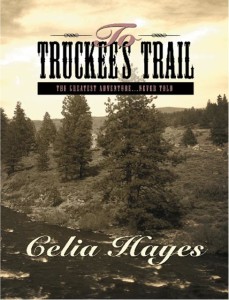

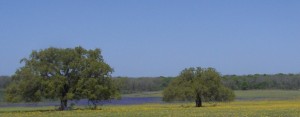
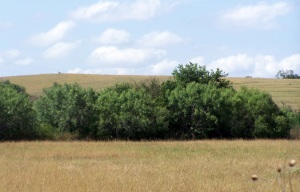
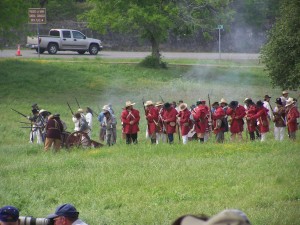
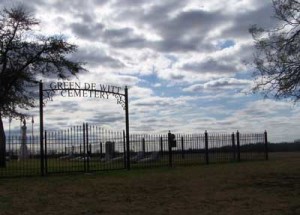
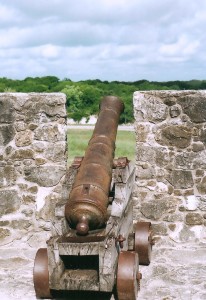
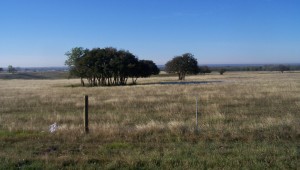
Recent Comments